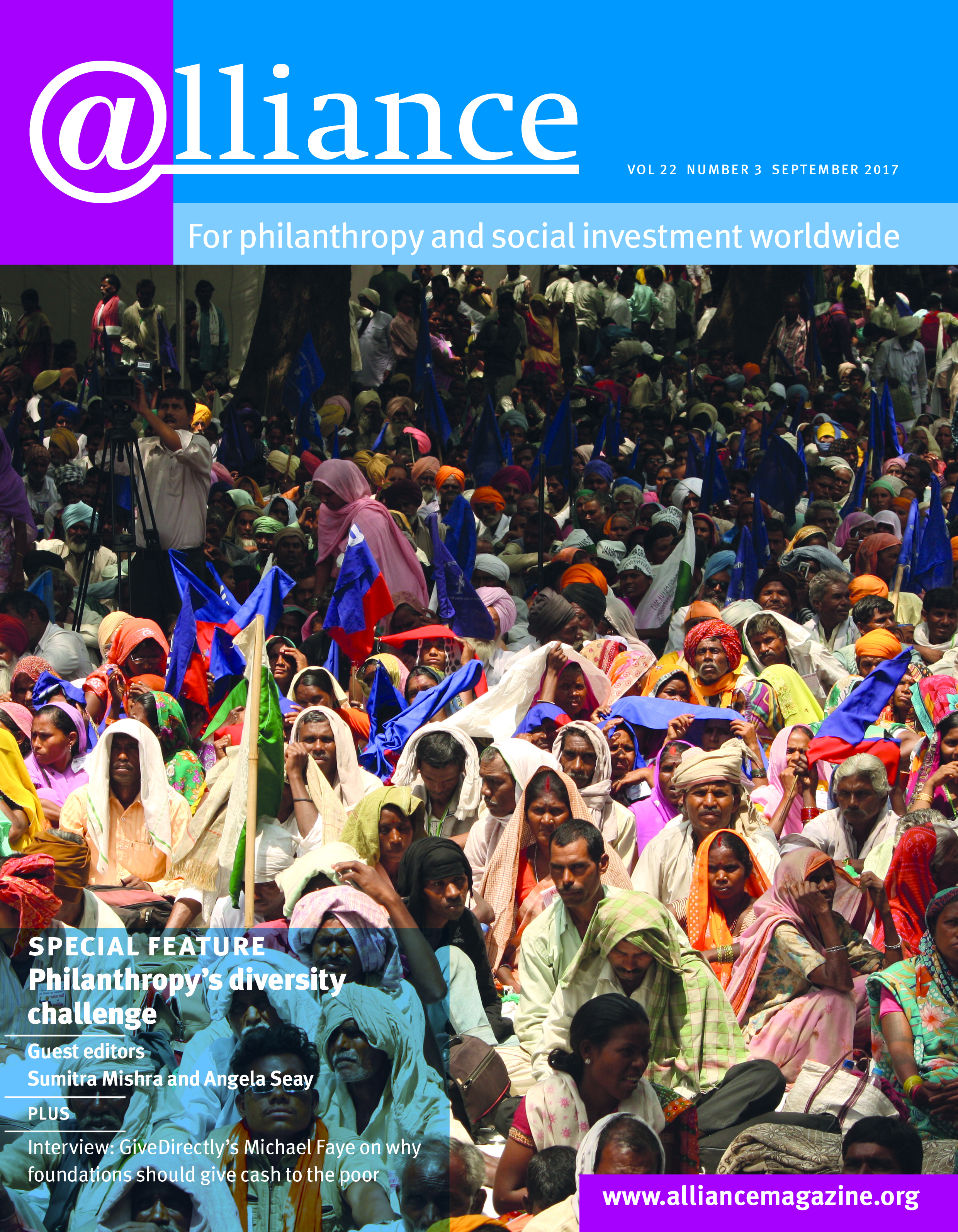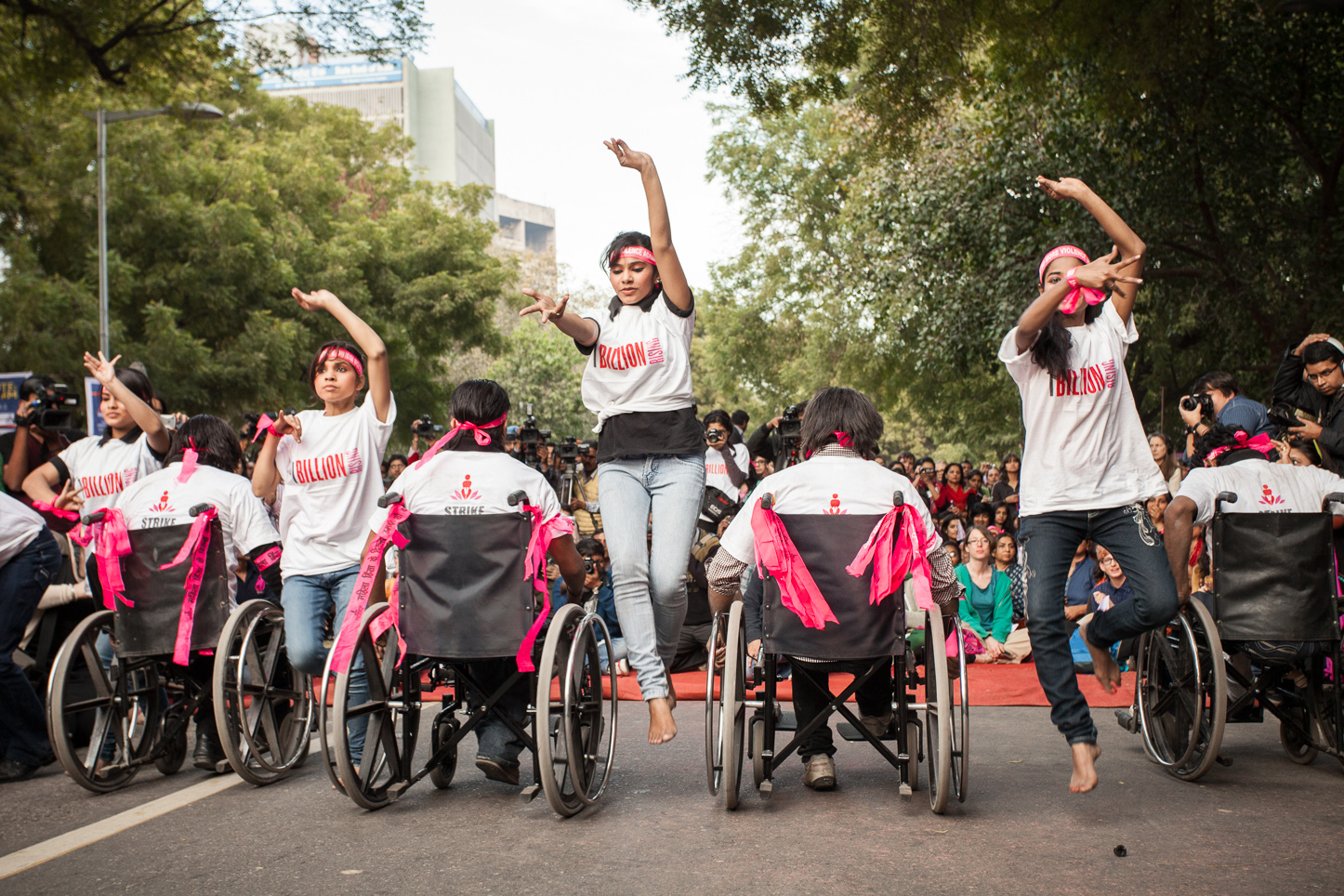Most grantmaking organizations in India are registered as trusts and their governance is vested in a small group of people who are either friends or family of the founder. To date, this approach has not been contested. There was an underlying acceptance of the fact that, since it was the philanthropist’s hard–earned money, he/she was entitled to spend it in any way they felt like it. The new corporate social responsibility law has led to increasing professionalism across the sector, but we are still far away from seeing the governance of these foundations reflect the diversity of either the issues that they would like to address or of the people they would like to reach out to.
Foundations continue to be run by confidants of the founder or in the case of corporate foundations, by the top brass of the company. People from poor and vulnerable backgrounds rarely make it up the corporate ladder to those levels. Few women do either.[1]
That’s not to say that foundations can’t do good, but what will usually escape them will be the nuanced difference between ‘charity’ and social development expenditure, which is more sustainable and longer serving.
It is my view that the moment funds are made available to public trusts and foundations, they enter the public domain and become ‘public funds’ and therefore demand greater transparency and accountability. This in turn will bring greater professionalism, better targeting and more effective utilization of funds.
The key questions that foundations need to ask themselves are whether they are listening to the right people, and whether they are being responsive to the real issues faced by the people they intend to work for.
These questions are best answered if the people making the decisions have shared the experience of those they are serving or, as a good proxy, if they have such people on their boards.
Paul Hamlyn Foundation (PHF) has been alert to this need to change and this is reflected in the way the board in the UK is made up, and also, most importantly for me, in the governance and management of the India programme.
The key questions that foundations need to ask themselves are whether they are listening to the right people, and whether they are being responsive to the real issues faced by the people they intend to work for.
Alongside family representation, Paul Hamlyn Foundation has on its board a diverse group of people selected for their field expertise and their understanding of context. They also have a fixed term as trustees.
All of this ensures there is a dynamism in the leadership and the issues addressed are reflective of the changing reality. Importantly, UK-based trustees visit India regularly to see the work that is funded and hear directly from those on the ground.
The PHF India programme is also guided by an extremely diverse group of people. The small in-country team of advisors and consultants are from different parts of the country and have all worked with civil society organizations of the kind that PHF funds.
The team thus resonates with the reality of the target group and the target segments. Programme design is guided by organizations themselves so that the real concerns of the intended beneficiaries are adequately represented.
The Companies Act in India requires companies to appoint independent directors to their boards in the interest of objectivity and accountability. I believe similar legal provision is necessary to stipulate the inclusion of independent trustees/members representing target communities in foundations that have been set up to work for the poor and vulnerable groups in society.
Foundations have their roles cut out. Development paradigms, whether trickle-down or bottom-up, end up leaving a large population untouched and unaffected. Critical and carefully planned initiatives from foundations can remedy this.
Sachin Sachdeva is director of the Paul Hamlyn Foundation in India. Email: ssachdeva@phf.org.uk
Footnotes
- ^ According to the Credit Suisse Gender 3000 Report 2016, 11.2 per cent of board members in Indian companies are women.








Comments (0)